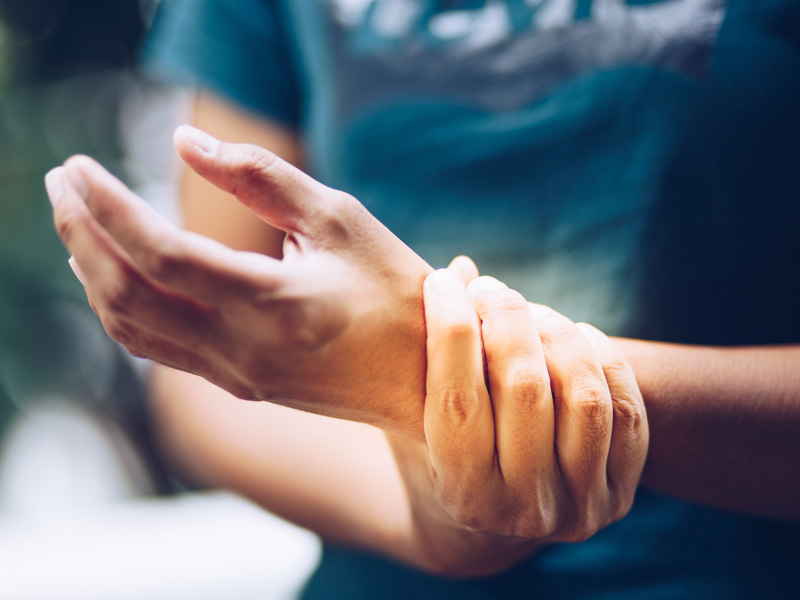

The Independent Physiotherapy Service (iPS) offers a range of specialist physio treatments for De Quervain's Tenosynovitis with experienced physiotherapists.
De Quervain's is a term used to describe pain and swelling of the tendons at the base of the thumb / wrist. It is commonly caused by activities that involve repeated gripping combined with movement of the wrist (e.g. painting or using a hammer) or activities involving repeated movements of the thumb (e.g. typing). It can be extremely painful and debilitating.
This condition often results in chronic pain, but cortisone (corticosteroid) injections can offer almost immediate relief of pain in the majority of patients. Research has shown that cortisone injections are significantly more effective than rest, anti-inflammatory medication and splinting alone. We are able to offer cortisone injections at selected clinics.
Information: Please book an Initial Consultation if you wish to book an injection. A consultation fee is paid at the time of booking. Injections will only be administered if clinically approriate. Following the assessment, you will be required to pay the cost of any injection(s) administered during the appointment. More than one injection may be required following the assessment. If you require more than one injection during your appointment, additional injection(s) will cost £180 per injection.
Time: 45 Minutes
Consultation: £75.00
Initial Injection Cost: £225.00
(Injection costs only apply if you proceed with the treatment)
Information: Please book an Follow-up Consultation if you wish to book an injection. A consultation fee is paid at the time of booking. Injections will only be administered if clinically approriate. Following the assessment, you will be required to pay the cost of any injection(s) administered during the appointment. More than one injection may be required following the assessment. If you require more than one injection during your appointment, additional injection(s) will cost £180 per injection.
Time: 30 Minutes
Consultation : £50.00
Initial Injection Cost: £225.00
(Injection costs only apply if you proceed with the treatment)
We want to ensure that all of our patients receive the information they need to make an informed decision about their Treatment. If you have any questions or if you require assistance with anything, please let us know.

The Independent Physiotherapy Service
Copyright 2024 - Registered in England and Wales No 5122019.
